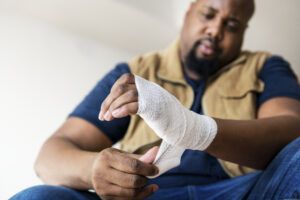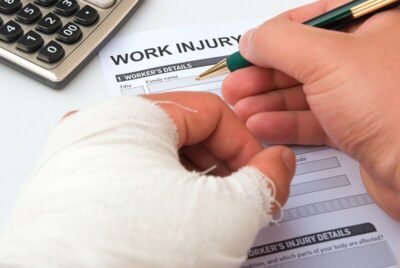New Orleans, known for its vibrant culture and rich history, is home to a variety of industries, from tourism to construction. With such a diverse workforce, the possibility of workplace injuries is an ever-present concern. Workers in New Orleans rely on protections like workers’ compensation when accidents happen. However, not all injuries are covered under this system, making it crucial for employees to understand what is considered a work-related injury and what isn’t. For guidance, workers often turn to experienced workers’ compensation attorneys serving New Orleans to ensure they receive the benefits they’re entitled to.
What Is a Work-Related Injury?
A work-related injury is any injury or illness that arises out of and in the course of employment. In Louisiana, specific circumstances make injuries eligible for workers’ compensation:
- Performing Job Duties: Injuries that occur when an employee is engaged in the performance of assigned duties fall under this category. For instance, it could involve a factory worker being cut with machinery while trying to assemble some products; such an injury would be considered to have occurred within the course of employment. Thus, the definition encompasses the routine work and non-routine activities that can be expected in work environments.
- Using Employer Equipment: When injuries occur as a result of the use of equipment, tools, or machinery at work, they are generally considered work-related. In this case, employees may have an excellent argument to back up their workers’ compensation claim when they are hurt as a consequence of defective equipment, like a broken saw from a woodworking shop. The employers are bound to check that all machines and other equipment are in good condition and cannot cause any injury to any one of them, and their failure to do so will mean liabilities.
- During Work-Related Travel: Employees injured while traveling for work, such as going to a client meeting or attending a training seminar, can typically file for workers’ compensation benefits. However, it’s essential to distinguish between work-related travel and regular commutes. Injuries sustained while commuting to and from work usually do not qualify. Clear documentation of the travel purpose and its relation to job duties can help substantiate these claims.
- Involving Employer Activities: Injuries occurring at company-sponsored events—such as team-building exercises or holiday parties—may also be considered work-related. However, whether participation was mandatory or voluntary can affect this classification. If the event was part of job responsibilities or required attendance, the likelihood of coverage increases. Employers may also have liability for injuries occurring during these events, depending on the circumstances.
- Developing Occupational Illnesses: Some injuries manifest over time due to workplace conditions, such as repetitive strain injuries or illnesses caused by long-term exposure to harmful substances. These can be considered work-related if there is a clear connection to job duties or the work environment. Employees should document their symptoms and their relationship to work activities, and medical evaluations can help establish this link.
What Is Not Considered a Work-Related Injury?

While many incidents can qualify as work-related injuries, certain scenarios do not meet the criteria in New Orleans:
- Injuries from Intentional Self-Harm: Any injuries resulting from an employee’s intentional actions are not considered work-related. For example, if an employee deliberately injures themselves out of frustration or emotional distress, they cannot claim workers’ compensation for those injuries. This rule is in place to prevent abuse of the workers’ compensation system.
- Injuries Occurring During Non-Work Hours: Injuries that happen outside of work hours, even on the employer’s premises, typically do not qualify for workers’ compensation. For instance, if an employee is injured while using the company gym after their shift, that injury is usually not covered. This distinction is important for employees to understand, especially if they engage in personal activities at the workplace.
- Off-Duty Activities: Injuries that occur during activities unrelated to work—such as running personal errands or exercising during a break—are generally not considered work-related. If an employee gets injured while shopping during their lunch break, that injury would not be covered under workers’ compensation. Employees should be aware of how their activities during work hours may impact their claims.
- Injuries from Horseplay: Injuries sustained from horseplay or practical jokes among coworkers are generally not covered. For example, if employees engage in a roughhousing game during break time and someone gets hurt, that injury typically wouldn’t qualify for compensation. This policy is intended to discourage unsafe behaviors that can lead to injuries.
- Pre-Existing Conditions: If an employee has a pre-existing condition that is aggravated by work activities, it can complicate claims. While the aggravation can be work-related, proving that the workplace conditions directly caused the increase in severity may be challenging. Employees should maintain thorough medical records and document any changes in their condition, as this information can be critical in establishing the connection.












